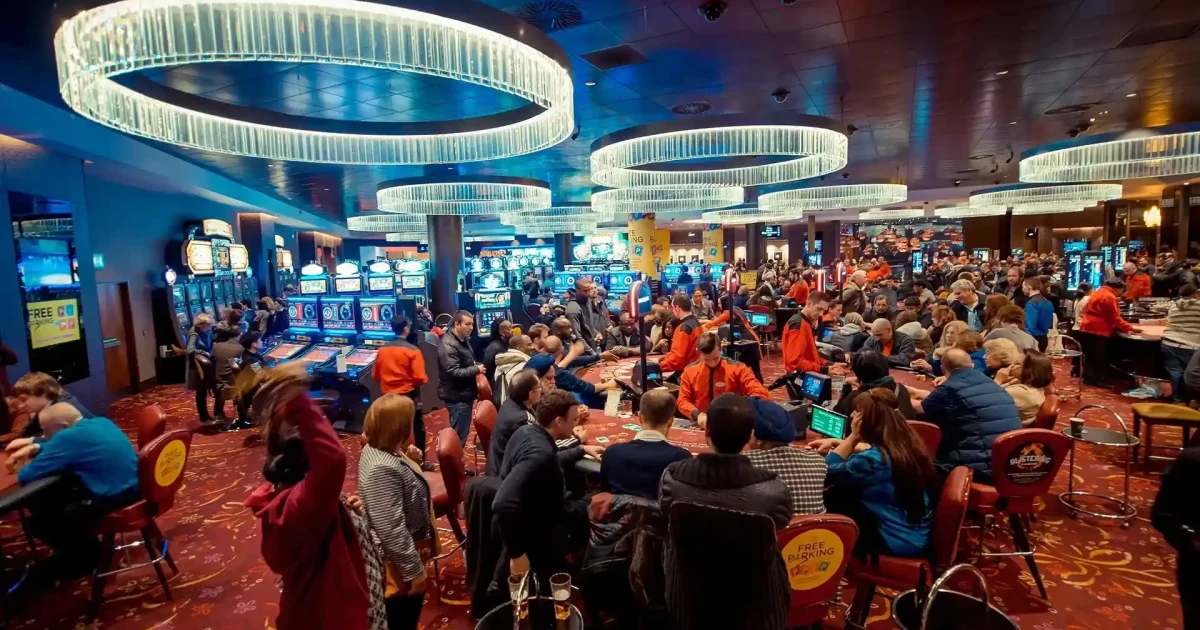
In the world of gambling, in which chance and strategy converge, a unique tapestry of beliefs emerges—one that intertwines luck, fate, and the enigmatic nature of casino games. Casinos, bustling with excitement and anticipation, are not just spaces for placing bets; they are also arenas in which superstitions thrive. From the novice player to the seasoned gambler, these mysterious practices often shape how individuals approach the games they play, believing that their actions can affect the outcome in ways that go beyond mere probability.
As players gather around roulette wheels, blackjack tables, and slot machines, the atmosphere is thick with stories of lucky charms, rituals, and codified behavior that defy logic yet provide a sense of comfort. It could be the case that it’s wearing a specific outfit, following a particular sequence of bets, or even avoiding certain numbers, the attachment to various superstitions reflects a deep-rooted desire to manipulate the uncontrollable. This article delves into the captivating world of casino game superstitions, investigating the beliefs that both entertain and mystify those who dare to play.
Historical Roots of Superstitions
Gambling activities have long been entwined with an variety of superstitions that go back to primitive societies. The roots of these ideas can be associated to humanity’s innate wish to control the uncertain outcomes related with luck and randomness. In primitive civilizations, games of uncertainty were often connected to ritualistic practices. Gamblers would seek aid or ask for favor from spirits, believing that their actions could change the outcomes in their advantage. This basis laid the basis for the multitude of superstitions that developed as gambling evolved over ages.
During the medieval age, gambling became a common hobby across Europe, and with it, a diverse tapestry of superstitions appeared. Participants adopted different rituals and charms, believing they could influence the results of games. The significance of numbers, in particular, started to manifest in superstitions around card games and dice. The number seven was often considered favorable, while different numbers carried negative connotations. These ideas mirrored the cultural contexts of the time, adapting as they transferred through generations and changed to new gaming environments.
As gambling houses emerged in the 1600s, particularly in Italy and the French nation, the atmosphere surrounding gambling became saturated in enigma. The growing openness of gambling games allowed for the dissemination and diversification of superstitions among players. Concepts like lucky charms, designated seating arrangements, and rituals gained importance, creating a unique culture within betting houses. As these customs continued to thrive, they became integral to the identity of casino activities, illustrating how the past and tradition shape the convictions that influence how players engage with chance.
Widespread Gambling Superstitions
Beliefs surrounding gambling games are abundant and diverse, reflecting the dreams and anxieties of players as they engage in random games. One of the most common views is that specific numbers bring luck or bad luck. Karachi 777 For example, the number 7 is often seen as a favorable digit, frequently embraced by players looking for a favorable outcome. Conversely, the digit 13 is routinely considered cursed, leading many players to avoid it during their gambling sessions.
Another frequent superstition relates to rituals that gamblers believe can influence their chances. Whether blowing gently on dice before a roll, using a specific gesture to place a bet, or even wearing particular items of clothing, many individuals feel that these rituals can sway fate in their favor. These rituals offer a sense of power in an otherwise unpredictable environment, reinforcing the idea that luck can be created through individual beliefs and customs.
Finally, the environment and atmosphere of the gambling house itself contributes to superstition. Many players suggest that the presence of certain icons, such as four-leaf clovers or fortunate tokens, can enhance their odds of success. Additionally, gamblers might hold to the belief that winning streaks can be interrupted by mundane events, such as someone walking past or a spill at the table. The shared environment in a casino can amplify these superstitions, creating a shared culture of myths that goes beyond single encounters.
Impact of Superstitions on Players
Superstitions play a crucial role in the psychology of casino players, often affecting their actions and choices. A lot of gamblers think that luck can be manipulated through different rituals, such as donning a talisman, choosing particular hues, or steering clear of particular digits. This reliance on superstitions can create a feeling of control in an environment that is intrinsically unpredictable. Players often feel more confident and involved when they believe that their actions could sway the result of a game in their advantage.
The influence of these superstitions extends beyond singular players, affecting the overall atmosphere within the casino. For instance, a player who holds the belief in the luck of a certain slot machine might draw a crowd, as onlookers are intrigued by their apparent luck. This shared belief can amplify excitement and create a dynamic environment, leading to an engaging experience even for those who may not necessarily be believers themselves. The excitement around certain games can lead to higher participation and extended playing sessions, supporting the casino’s vibrant social scene.
In some cases, superstitions can lead to harmful effects for players. Depending too much on rituals can result in poor gambling decisions, as some may ignore basic strategies in favor of baseless beliefs. Additionally, the pressure to perform rituals may heighten anxiety and tension, diminishing from the enjoyment of the experience. Ultimately, while superstitions can enhance the thrill of playing casino games, they can also lead to poor choices that overshadow the fun and amusement intended in the casino experience.
